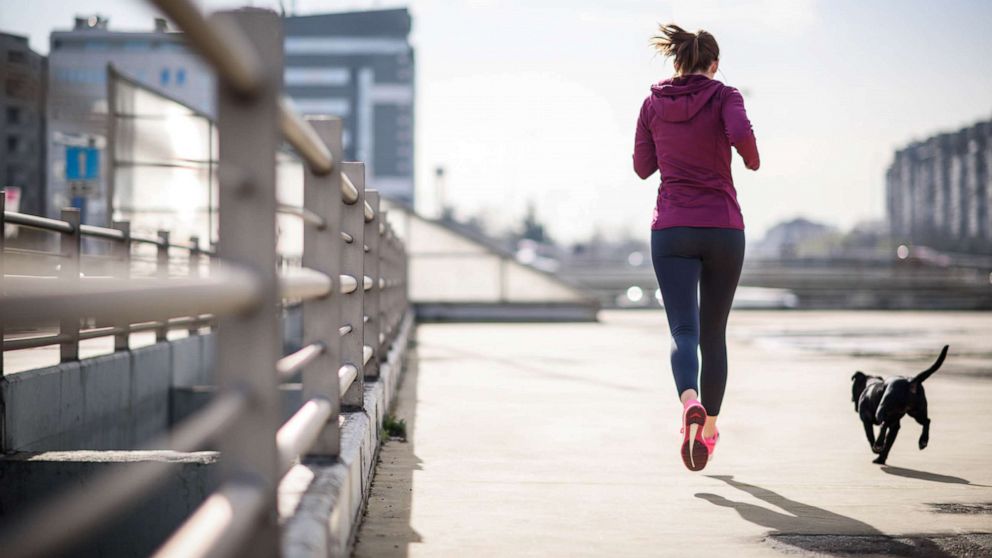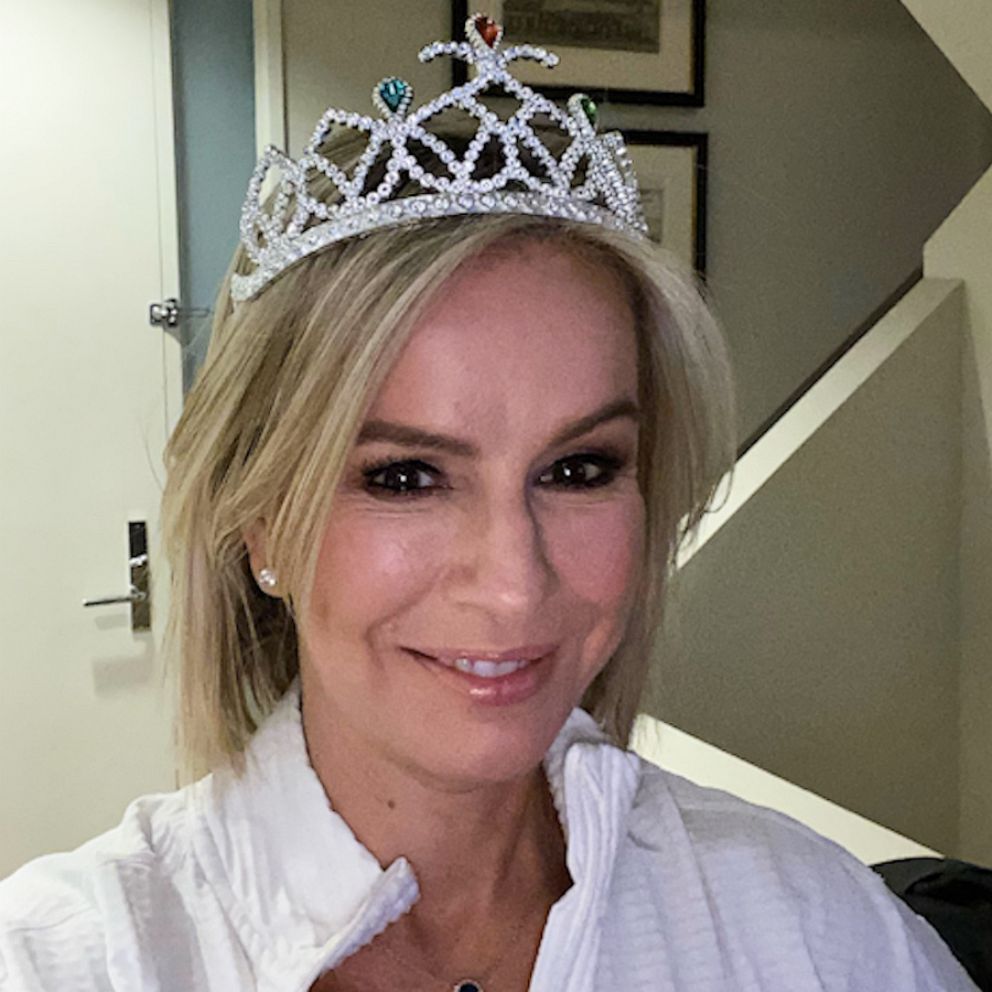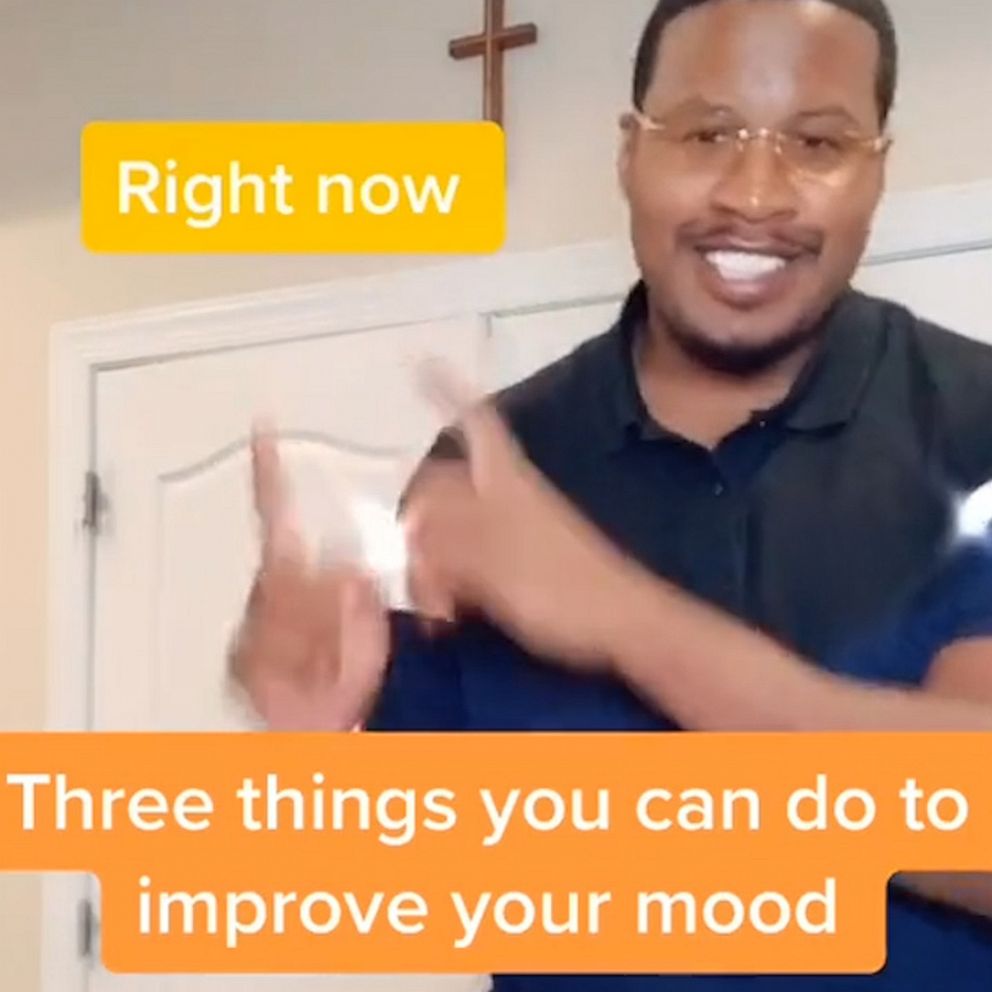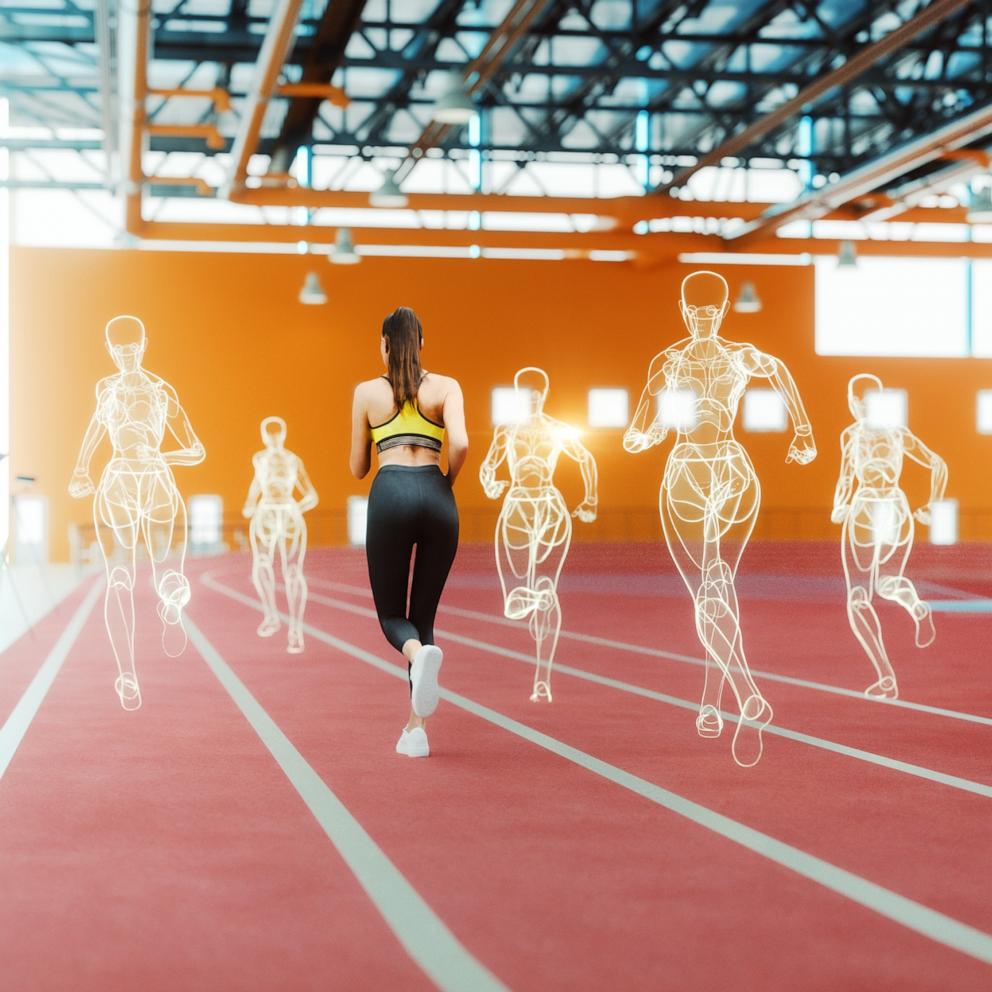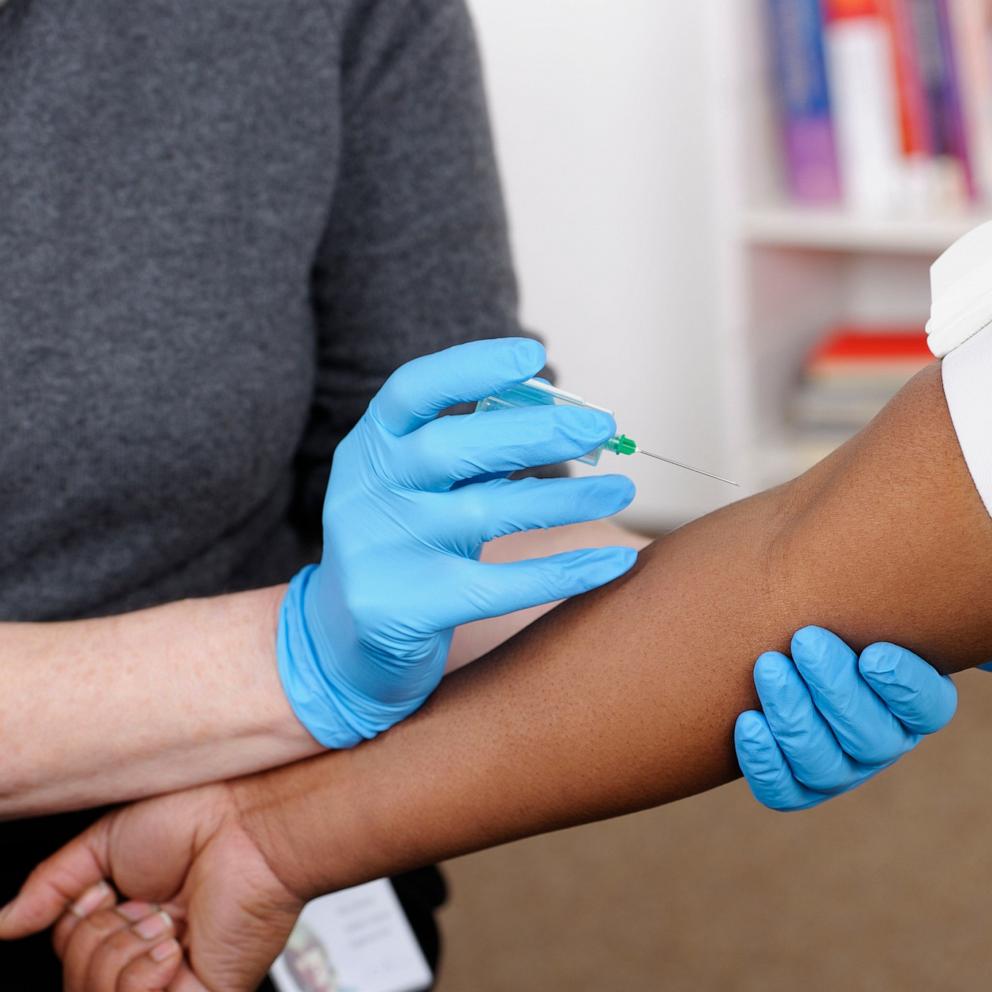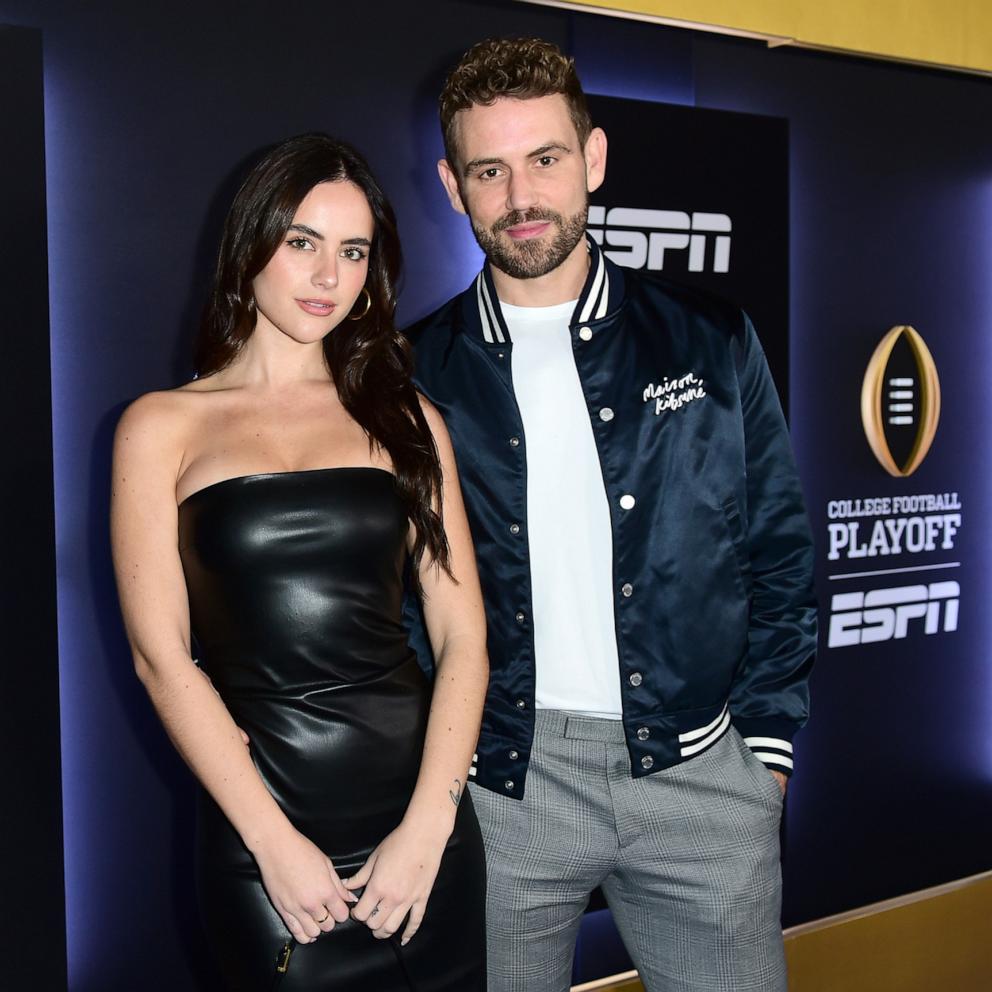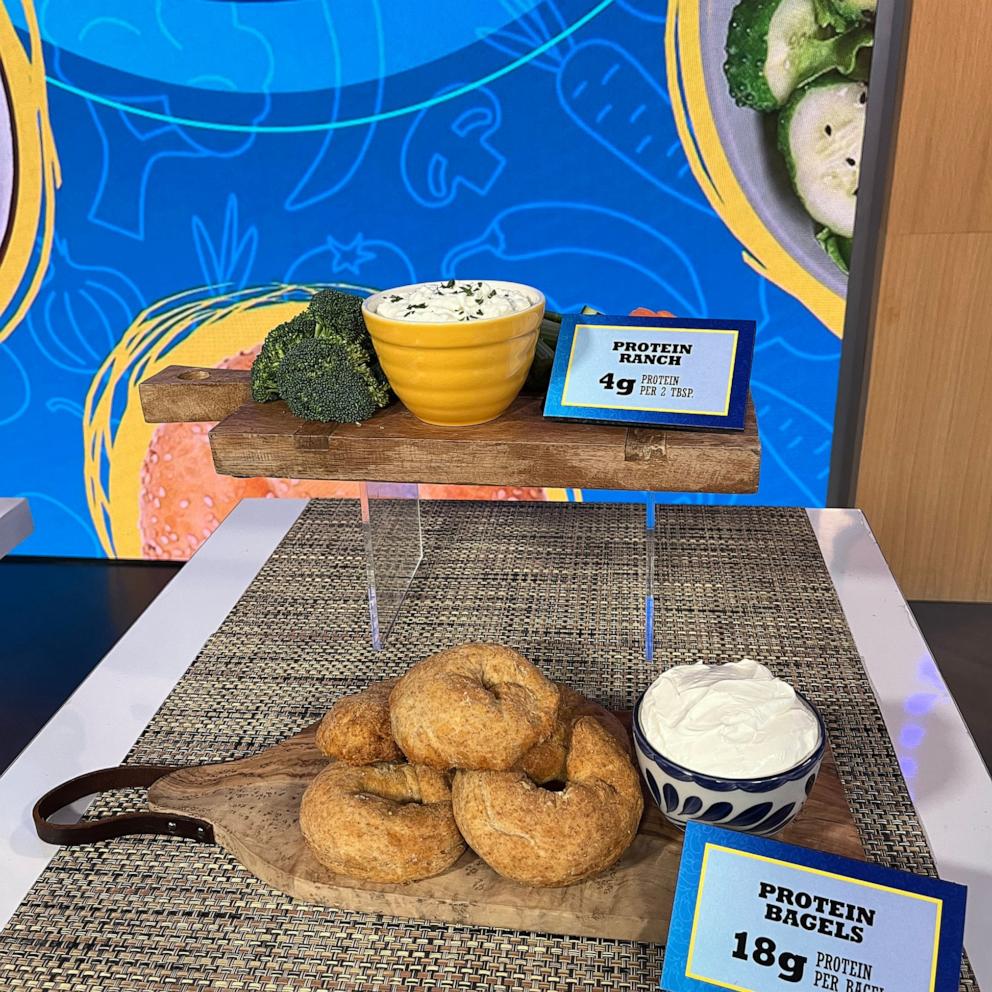Walk, run or wheelbarrow: We moved our bodies forward during the pandemic

This story by Senior Writer Allison Glock originally appeared on espnW.com.
It's 5 o'clock and the sun is beginning to dip as my daughter pulls on her coat and heads out for her daily walk. She is 20 and has been living at home since the onset of the pandemic, a stark shift from her former independent life in New York City, and a tight arrangement that chafes us both.
Her 19-year-old sister is also home, remote learning away from her college campus, and while we are grateful beyond imagination to thus far be healthy and to have a house in which to quarantine, bumping up against each other every day for nearly a year while we pretend the world isn't melting has made cornered ferrets of us all.
At our worst, we snarl and hiss, longing fervently for THE MOMENT when we can rejoin society and, with it, a version of ourselves we recognize. The outside version. The active, animated, alive person we once saw reflected in the eyes of others, one beyond the (not so) funhouse hall of mirrors we currently stare into.
Until then, my eldest walks. She carries a backpack loaded with her journal, a beanie, whatever book she's reading. She dons her mask and canvasses our Atlanta neighborhood at New York speed, striding purposefully as if she has somewhere to be. When the sun starts to set, she sits on a patch of grass or a park bench to catch her breath and stares into the sky, tracking the light until it bleeds into darkness.
She does this every evening because, as she explains, it gives her "something to look forward to."
When she comes home, cheeks flush, hair windswept, my daughter does seem happier, lifted. The simple act of walking underscoring her autonomy, reminding her that she is still a human capable of breathing fresh air, of shuttling from point A to B, that she is still a human at all.
For her part, my younger child runs. I hear her in the early morning, tiptoeing past the sleeping dogs, her lanyard key jangling around her neck. She hates running.
What she really wants is to be back on her university campus with friends. To be engaged and challenged and eating crappy cafeteria food and working on the local farm and stressing about grades and wondering what color she should dye her hair next. Instead, she is in her childhood bedroom Zooming in front of a screen stacked with largely silent black squares, doing her best to act as if this is still worthwhile, her sorrow an anvil on her chest. So she runs. She runs as fast as she can.
At night, we talk a lot about "The COVID Lessons." The education of the past 10 months. The Marie Kondo-fication of our souls. We pretend we are learning what actually matters.
I tell my children to trust in facts, which still exist and carry the weight of centuries. I tell my children I want them to recognize who benefits if we are confused, if we are unclear, if we are off-balance, if we are afraid, if we are split from the herd by our otherness. Hint: not us. (Not anyone, really.) Mostly, I tell my children that I love them and they matter. My children who don't want to have children anymore.
Maybe they hear me. But I doubt any of it registers as appreciably as the immediacy of their feet hitting the earth during their walks and runs. The rib-deep assurance they feel when they pound and stomp and the ground does not give way.
A new year brings with it the promise to reenter the world we once knew. Our season of grief is almost behind us.
I recently took a long hike of my own through a historic cemetery in my neighborhood. My dog bounded ahead, racing across the expansive potter's field, a resting place for the forgotten and overlooked, now blanketed with Bermuda grass and magnolias. I jogged to keep pace, the tread of my sneakers sticking slightly in spots of damp mud. We both came to rest, panting under the shadow of a century-old oak, branches nearly bare, the few remaining leaves cupping the light like jewels. My dog snorted, rolled, peed -- shamelessly lived his id-rich life. In the distance, another visitor waved our way, then shrugged and moved on.
As I stood there, I thought about an Olympic hopeful I'd interviewed years ago. I met him at a high school athletic field, where he was running drills after his shift at his day job. Weeds clogged the edges of the neglected track. Empty beer bottles and greasy burger wrappers had blown into the lanes, and the surface itself was cracked and buckled in spots. But the track was close to his house, so that's where he trained, unsung and alone, for an event that is years into an uncertain future, for a team he might not even make.
I remember watching him round the curve back then, cheeks puffed, eyes glazed with pain, and wondering what kept him running. I remember thinking how difficult it must be to sacrifice that much. To believe so blindly in a story as yet unwritten.
Over the past year, almost all of us have become prisoners in our own M.C. Escher print made real, bit players in an unfolding Samuel Beckett novel. You must go on. I can't go on. I'll go on. Every day we are neck-deep in cruel absurdity, in absurd cruelty, grasping for meaning in a vacuum. Left with nowhere else, we return to the body because, among other gifts, the body does not lie.
A girlfriend told me she's been laboring to keep her sanity during quarantine by hauling a wheelbarrow loaded with mulch up and down her driveway, shoulders burning, the Sisyphus of the suburbs. Another 40-something colleague is teaching herself to ride a skateboard because, why not? There is so much death. Choking levels of despair. Countless dreams deferred. The numbers -- the stats -- simultaneously unbearable and impossible to fathom.
You must go on. I can't go on. I'll go on.
There is, mercifully, a vaccine, offering a promise to reenter the world beyond ourselves. This is good news. This year and its season of grief are almost over. But that release remains many months away. Leaving us to linger betwixt and between, on the threshold of a hope we dare not imagine, believing blindly in a story as yet unwritten.Until then, we walk.
Until then, we skate. We hike. We wheelbarrow. We run. We chase our dogs. We meander in cemeteries, searching for signs of life. We propel our bodies forward. We tread the ground. And we do not fall through.
Disney is the parent company of ESPN and “Good Morning America.”
